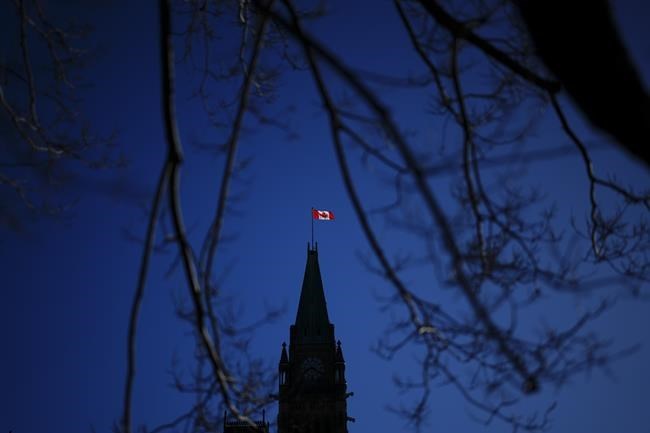OTTAWA — With a variety of fiscal and policy measures announced in the federal budget, here's a look at some of the winners and losers:
Winner: Small businesses
Carbon tax rebates for small businesses are coming, five years after consumers began receiving their share. The measure is "a big relief," said Dan Kelly of the Canadian Federation of Independent Businesses, which represents the sector. The budget says as many as 600,000 small firms would be eligible for a share of $2.5 billion.
—
Loser: tobacco industry
The federal government will collect an additional $4 per carton of 200 cigarettes starting Wednesday, on top of the $1.49 added on April 1 as part of an automatic inflation adjustment. For vaping products, singled out in the budget as a public-health issue affecting younger Canadians who have been "enticed by appealing marketing," vaping excise duty rates will increase by 12 per cent, or between 12 and 24 cents per typical vape pod. Together, the measures should generate about $1.7 billion in the next five years.
—
Winner (eventually): fintech companies
Long-promised details about a framework for open banking ‚Äì a system that allows consumers to easily access their financial data across multiple institutions, apps and services ‚Äì were revealed in Tuesday's budget, though the specifics are reserved for legislation to be tabled before the end of the year. It names the Financial Consumer Agency of Canada to oversee and enforce the system and sets six core elements for the framework.¬Ý
The budget also sets aside $4.1 million over three years for the Finance Department to complete the policy work necessary to establish and maintain the oversight entity and framework. The financial sector will welcome any clarity on this file after years of seeing the can kicked down the road, but it's unclear what the implementation timeline will be.
—
Loser: Canadian pension funds
An increasingly loud debate has emerged about whether the country's largest pension funds should invest more of their capital in Canada. They say they already invest here and higher returns can be found abroad, while proponents of the move argue money should be spent to help improve productivity and business investment at home. The government says it will create a working group led by the finance minister and former Bank of Canada governor Stephen Poloz to explore ways to spur spending in Canada, but it doesn't appear to have a lot of teeth.
In the meantime, the government says it will require financial regulator OSFI to publish information about the investments of large federally regulated pension plans. That could see even higher scrutiny from climate change activists and interest groups hoping to sway investment decisions.
—
Winner: Cellphone and internet users
Wireless costs are too high, telecom industry watchers told MPs studying cellphone plans earlier this year, even as prices have been on the decline in recent years.¬Ý
In the budget, the government says it will make it easier to renew or switch between cellphone plans, something advocates say makes it easier to get a better rate. It also will require carriers to provide some kind of self-service option, like an online portal, so that customers can more easily switch plans.
—
Loser: Entertainment lovers
Canadians have long complained about soaring ticket prices for concerts and sporting match tickets. Those prices are more exorbitant when tickets are purchased from resellers who gobble up seats using "bot" technology the second they go on sale, keeping them out of the hands of fans.
The budget says the federal government will work with provinces and territories to adopt ticket sales best practices that reduce unexpected charges during the buying process, crack down on fraudulent sellers and ensure Canadians get timely refunds when events are cancelled. However, it offers no plan with enforceable measures or deadlines to accomplish these feats, which could leave Canadians battling scalpers even longer.
This report by The Canadian Press was first published April 16, 2024.
The Canadian Press
Note to readers: This is a corrected story. A previous version said the budget was released on Wednesday.




